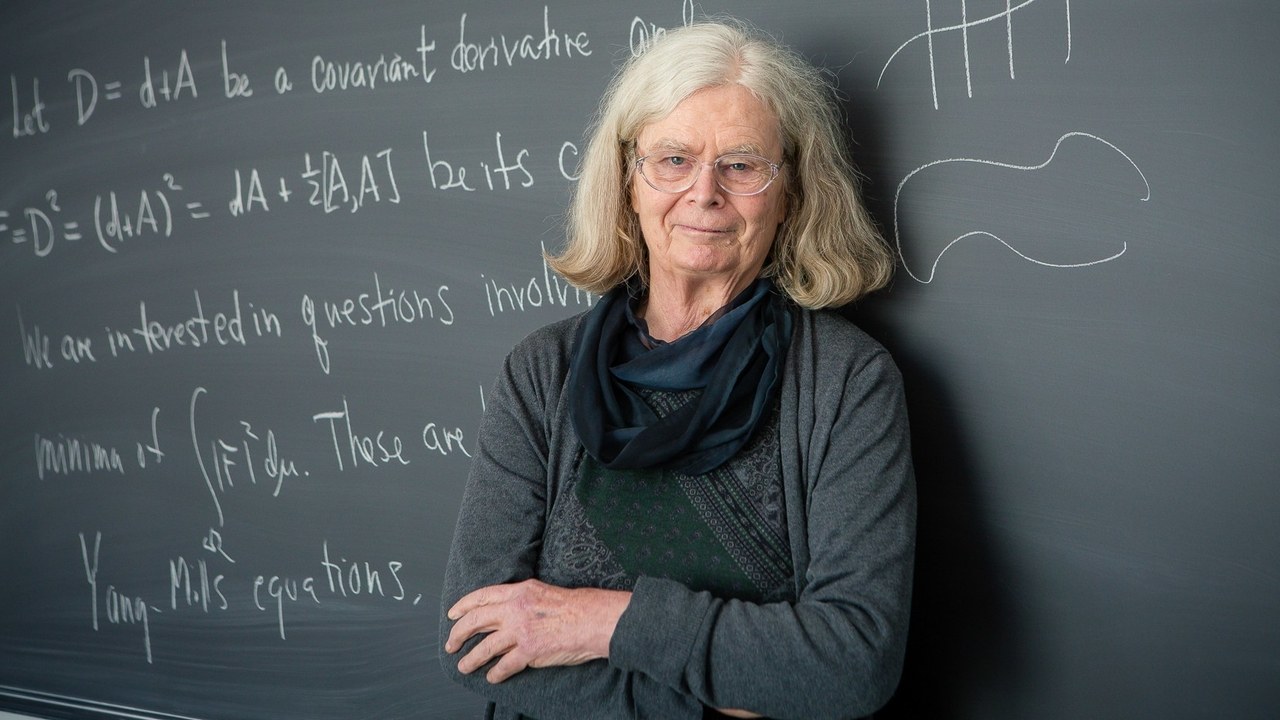Meet Karen Uhlenbeck, The First Woman to Ever Win the ‘Nobel Prize of Math’

For the first time ever, the most prestigious mathematics prize in the world was awarded to a woman. Karen Uhlenbeck, 76, an emeritus professor at the University of Texas at Austin and current visitor at the Institute for Advanced Study, was honored with the Abel Prize for mathematics. Known as the Nobel Prize for math, the Abel comes with a cash prize of about $700,000. (NBD: It’s up to the King of Norway to give it.) The award was established in 2003, and all previous winners have been men.
Dr. Uhlenbeck was recognized for, “the fundamental impact of her work on analysis, geometry and mathematical physics.” according to the New York Times. When Dr. Uhlenbeck found out she’d won, she was leaving her Unitarian Universalist Church when she received a text message from a colleague telling her to look out for a call from Norway. “I pressed the button and called [the Abel committee] back and they told me I’d won—and I had to sit down,” Dr. Uhlenbeck told Glamour.
When Dr. Uhlenbeck began teaching mathematics in the 1960s, she had to fight tooth and nail to even procure a professorship. “It was really only at the period of time that I got my degree, that the jobs in academia—and probably elsewhere—were slowly being opened up to women,” she says. “I was right on the edge of that. There were certainly universities that would not consider hiring me. There were universities that said, ‘Oh well why don’t you go teach at a woman’s college.’ I was told things like that, but I guess I have a rebellious streak so I persevered.”
Since there weren’t a huge number of women who had come before her to look up to in STEM, Dr. Uhlenbeck maid attention to women who’d pioneered other fields for inspiration. Famed chef Julia Child was a particular role model. “She was 6’2, a big woman with this immense presence and there was this great incident that I distinctly remember where she dropped a turkey on her television show. And she picked it up, brought it to the back, and came out and said, ‘Luckily we had another one!’ She had presence and wasn’t perfect. The feeling was if Julia Child could do it, maybe you could too,” says Dr. Uhlenbeck.
Dr. Uhlenbeck has emulated Child’ style of being an approachable and human role model to the many women she’s mentored over the years—as well as those who have simply come in her wake. “Since winning the award, I’ve gotten innumerable emails from women telling me how important my being there is, and it’s a great feeling,” says Dr. Uhlenbeck. But this isn’t a coincidence. Dr. Uhlenbeck made it her mission to encourage more women to enter the field. “I have to say that it struck me at some point that if I were to look around and see no women coming up through mathematics behind me, how would I feel? I would feel terrible. Now, I see these lively, enthusiastic, brilliant, wacky young women coming up and doing mathematics. When I was young I couldn’t afford to be wacky. I had to be careful. I couldn’t dye my hair purple and get up and teach calculus class ,but I love seeing it; it’s wonderful to see.”
With a new efforts to get girls into STEM from a young age, Dr. Uhlenbeck is hopeful that we’ll see even more women work in mathematics. “Certainly the problem [of girls not pursuing STEM] starts very young,” she says.” I don’t know how many young girls are still being told that they don’t have to bother taking advanced placement math because they’re a girl and they don’t need it—but I know it still happens. However, all I can say is that it’s getting better [from this push.]”
